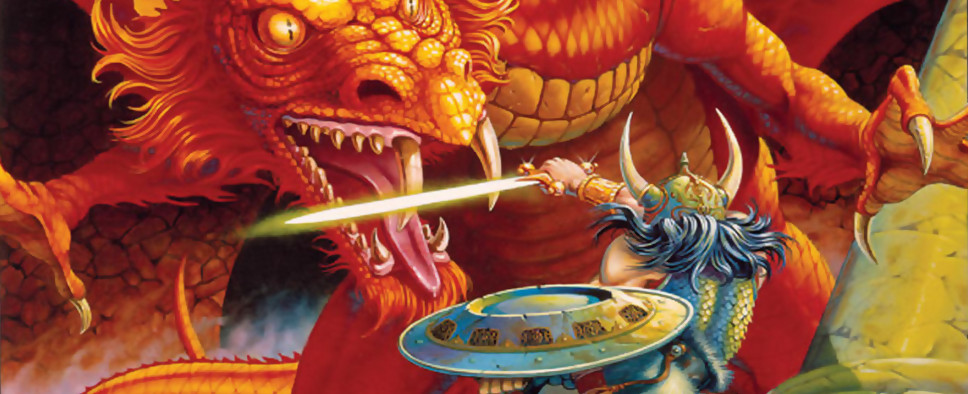Dungeons & Dragons 5th Edition Interviews
-
Category: News ArchiveHits: 2335

I have strong suspicions that the soon-to-be-released 5th edition of Dungeons & Dragons will be the foundation for an upcoming cRPG (although I have little to base this on), so I can't help but read through the many D&D articles that have been getting published lately. Two of these are new interviews with lead designers Mike Mearls and Jeremy Crawford, so I'll send you over to The Mary Sue and Suvudu for the elaborate details while I quote some of the most interesting questions and answers below:
The Mary Sue: The Personality and Background section seems pretty elaborate for a starter edition. What led to a dedicated (and fairly open rules) background section?
Mike Mearls: We really wanted to give people the chance to get creative with the game. Roleplaying makes D&D in particular and tabletop RPGs in general different from other types of games. We wanted the Basic Rules to showcase the traits that make RPGs stand out, that show new gamers that they've stumbled into something very exciting, empowering, and novel.
Jeremy Crawford: In a roleplaying game, who your character is can be as important, if not more so, than what your character can do. We wanted the new edition of D&D to reflect that fact in the rules themselves. And we wanted to inspire players' storytelling about their characters, to give players the raw material that they could use to form a backstory and a personality for a character.
...
TMS: Do you see this type of character flexibility as key to tabletop games? Do you see computer games handling this combination of character complexity and flexibility in the same way?
MM: It's hugely important. Since tabletop RPGs are constrained only by the imagination, it's important for the game design to encourage creativity. A digital game has to account for every possibility in its programming, something that RPGs get around through their open-ended nature. Even in the future, where AIs might be able to change a digital game on the fly, there's something to the social element of D&D that makes it a unique experience. No other game or art form quite captures its essence.
...
Tell me about the skill system. It's attribute-based, and looks like anyone can take a try at, say, picking a lock. How does this work in concert with one's choice of class?
If you are trained in a skill, you add your proficiency bonus to your ability check. That bonus goes up as you gain levels.
What's funny about the skill system is that it is mostly divorced from your class. You gain skills as part of your background, a package of abilities that represents what you did before becoming an adventurer. So, a fighter with criminal background might be the party's trap finder, while a wizard with the noble background might serve as the party's diplomat.
Classes do give a few skills, such as wizards gaining access to skills that represent the lore they've picked up, but your background is the real driver for it. That flexibility has proven very popular with players so far.
In terms of bigger picture design, we wanted to drive home the concept that in a tabletop RPG there are no limits. Anyone can try anything. Certain characters and classes are better at some tasks, but overall your imagination and ability to improvise trump the rules.
...
Are there any big surprises coming for fifth edition? Anything you can tell me?
There are definitely some big, exciting surprises coming up. There are easily six things that come instantly to mind that I want to talk about, but I don't think I can tease anything yet. I can talk about the philosophy behind our approach to the future.
I will completely admit my jealousy for games like Magic: the Gathering or Mass Effect, where you have players on the edges of their seats waiting for the next release. I think in the past D&D relied way too much on a volume strategy, where we did so much stuff that it was hard for people to get excited about any one thing. Book after book came out each month, far faster than anyone could absorb it all.
Our philosophy now is to make everything count. If we release a new super adventure, like Tyranny of Dragons, or a new rules expansion, we want it to be an event. When you add stuff to an RPG, you're asking all the DMs out there to evaluate their campaigns, learn new options, and then try to implement them. You have to be very careful in how you add things to the game, and very deliberate in making those additions exciting and compelling.
My dream would be a world where new expansions are real events, where people are seeing exciting new ideas and concepts for the game. Even better, as we expand into digital gaming we can bring D&D to life through video games in ways that people have never dreamed. That's really exciting to me.

